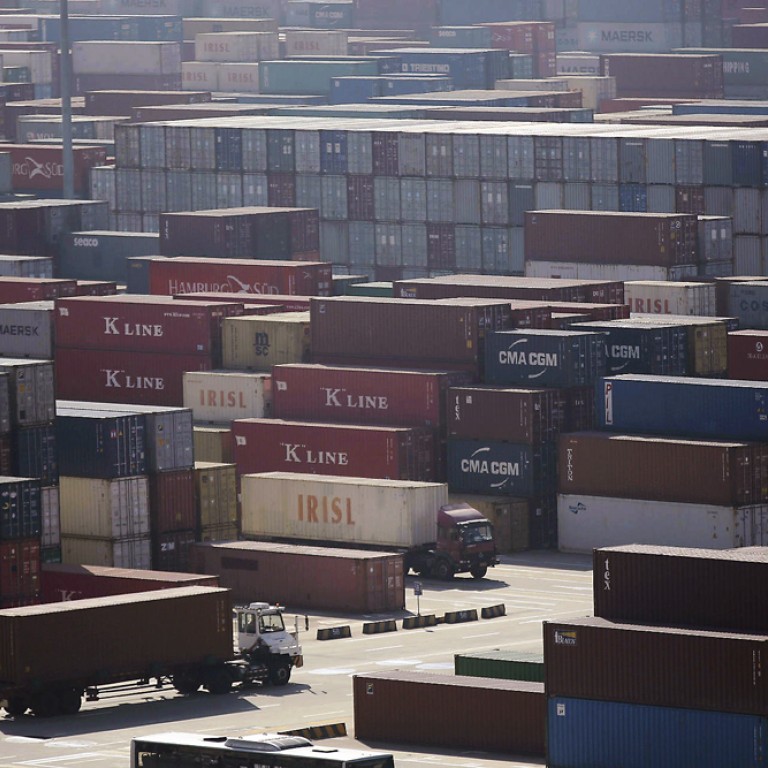
Hong Kong cited in illicit cash flow into China
Global research group says large sums of money being moved from the city across the border through falsifying of export invoices
Illicit capital flows into the mainland from Hong Kong through over-invoicing from 2012 to March last year are estimated to have reached US$155 billion, sparking fresh concerns over currency speculation.
Referencing data from the International Monetary Fund and Hong Kong customs, Global Financial Integrity, a Washington research and advocacy group that monitors fund flows, says such capital flows amounted to US$101 billion in 2012.
"The US$101 billion of foreign exchange brought in through illicit exports represents about 40 per cent of the US$253 billion of legal net [foreign direct investment] that [mainland] China received from abroad that year," said Brian LeBlanc, an economist with the research group.
The illicit capital in the first three months of last year was estimated at US$54 billion, the research group said, exceeding the US$29.9 billion foreign direct investment in the same period.
Such large sums of money … are likely being used to fuel currency and housing speculation
Total clandestine capital inflows through trade over-invoicing since 2006 until the third quarter of last year are estimated by the agency at US$400 billion.
Exporters can smuggle in capital by falsifying export invoices and inflating trade payments, funnelling foreign capital into the mainland for investments such as bonds and real estate, LeBlanc said.
"Such large sums of money have the potential to destabilise, and are most likely being used to fuel currency and housing speculation in the country," he said.
Raymond Yeung Yu-ting, a senior economist at ANZ Banking, said it could also result in speculation on the yuan.
"The trade figures were unexpectedly strong in the first quarter of last year, pushing up the renminbi at the time," Yeung said.
But exports slowed significantly in the second quarter after the State Administration of Foreign Exchange said it would increase scrutiny on fake trade payments, he said.
The mainland's exports to Hong Kong in March last year showed an unusual surge of 93 per cent from the previous year even as total export growth slowed to 10 per cent as a result of a global slowdown.
Concerns over distortions in trade data were fuelled as economists said some of the exports could be disguised capital inflows betting on yuan appreciation while some exporters were simply faking orders to gain export tax rebates.
Year-on-year growth in mainland exports to Hong Kong plunged to 7.7 per cent in May after the foreign exchange regulator stepped up efforts to curb hot money inflows for arbitrage purposes.
Yeung, however, said the mainland would continue to see hot money inflows speculating on yuan appreciation as the interest rates remained attractive to global investors.
"Hot money inflow will fuel expectations of renminbi appreciation, but I don't think the amount would be big enough to cause a credit bubble," he said.
Shen Jianguang, an economist at Mizuho Securities, said the mainland's stable monetary policy would continue to attract capital.
"China is a more stable country and its currency continues to appreciate. In other developing countries, such as Turkey and India, currencies are depreciating as a result of political uncertainty," Shen said.
He said he expected capital inflows to add to pressure on the yuan to appreciate.
"Higher interest rates of the Chinese currency is the main attraction for funds," he said.
